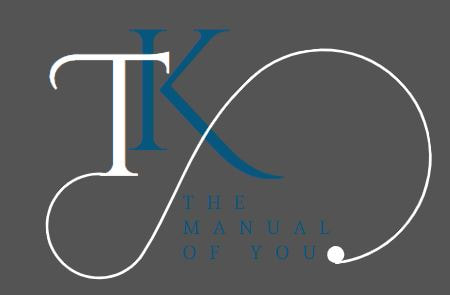|
So, you're thinking about booking an appointment with a talk therapist, such as a counsellor, psychotherapist, psychologist or coach (confused about the differences, check out this article), but you're not sure... Is it for you? Is your problem 'big' enough? Will it be too awkward and/or embarrassing and/or shameful? What if you don't like it? What if it makes things worse? What if other people find out? (If there's another reason not mentioned here, that's making you hesitate, why not pop it in the comment section below so I can address it in another post?) Talk therapy is one of the most misunderstood concepts in the world of health (OK, that was an overstatement but I'm going to stick with it for emphasis). I'm sure Freud and his obsessions with sex and female hysteria have something to do with this and certainly Hollywood isn't helping in the way they often portray what talk therapy is like (to be honest, for anyone not in the client's chair, talk therapy would be so boring to observe that no one would want to watch an honest show about it and us therapists live such normal lives that it wouldn't be worth making any movie or TV character a therapist if portrayed accurately). There's still stigma attached to seeing a talk therapist and the word 'crazy' and still creeps into my sessions (as in, 'I'm not crazy or anything' as if that was my presumption when a new client comes to see me). Nor is talk therapy necessarily about having a mental health problem (notice how I write 'problem'. We've developed a bad habit in our society of simply using the words 'mental health' to mean something bad, but the two words 'mental' and 'health' put together mean nothing. You need an adjective like 'poor' or 'good' or verbs like 'fitness' or 'problem/struggle/issue' to make those words have any meaning. Just like you don't tend to talk about 'physical health' without saying 'improvement' or 'bad' to make it clear what you're talking about). First of all, a talk therapist, like a counsellor or psychotherapist or life coach of some sort, is not a psychologist or psychiatrist and each of these disciplines works differently though a psychologist and a psychiatrist can offer talk therapy too (yes, it all gets a bit muddled at times). So, it's important, to ensure you get the desired support, that you're clear on why you're seeking support and what for. Some talk therapists are trained in specific areas like complex trauma, eating disorders, EMDR, hypnotherapy or other techniques/approaches, and if you have a problem that's causing serious disruption to your day-to-day living, it may be best you seek someone with specialist training. Others get trained in a specific approach/framework that can be applied across a variety of issues, such as Cognitive Behaviour Therapy (CBT) which is what the NHS will offer you, for example (I'm a pluralist, and you can read all about that here). If you're seeking a diagnosis, you may want to seek out a psychologist or psychiatrist. So, what does a talk therapist do? We talk... Or rather, we expect you to talk. Though we can sit in complete silence as well - that's OK too. I've written a post about what talk therapy is here so I'm not going to bore you any further with that just now. Instead, let's get specific as to why you should book an appointment and why you'll thank yourself afterwards. When we live in our heads, our thoughts can become quite overwhelming. It's really good and healthy to just let it out. That in itself has been proven to be cathartic. Even more so when in the company of a professional talk therapist as they're trained in listening in a way you won't have experienced before among friends. A talk therapist listens deeply and will hear, see and understand you in a way you might never have felt understood before. They're also amazing at putting themselves in your shoes and seeing the world through your eyes (that's what empathy is, compared to 'sympathy' which is when you feel sad or sorry for someone else). A talk therapist won't judge you or make you feel bad for what you've said because they understand that being a human is complex and we sometimes do or think things that society would frown upon. But not us. We'll respect you and make you feel validated in how you feel and think (though we might challenge you in it if how you're thinking and feeling isn't very healthy for you, but we'll be respectful and kind about it). We think talk therapy is so awesome and that absolutely everyone should try it and we don't see any problem as too small. Because of our ability to empathise, we do not have to have lived through your problems to be able to relate. Actually, sometimes it can be quite helpful to talk to someone quite different from you because they might offer you insight that someone who has lived through your experiences cannot. Talk therapists are not very interested in diagnoses and labels. It's not because they aren't helpful (to some, sometimes) but because they're much more interested in what makes you tick and how a specific problem impacts you uniquely. We don't see you as being 'mentally ill' either but rather as someone with 'a problem in living' - and we all experience that at some point in our lives or another, and often, rather frequently. Because life is tough! Our modern, Westernised world is not geared towards our ancient brains - all that noise, and busyness, and long to-do lists. Just think back to our ancestors... No generation before us has ever lived such stressful lives! It's really hard for us to cope in this environment. And never in history have we been so disconnected from each other, and as we're a group animal, it makes sense that we're struggling. For us, talk therapists, coming to talk to someone like us, is not about being 'ill' in any way. We think of it as a fundamental thing that absolutely everyone should have access to and be offered across their lifespan, and the stuff we explore in therapy should be taught in schools. Because the stuff we talk about is: How to communicate better with other people to avoid misunderstandings; how to think in ways that are healthier for your mood; how to take good care of yourself so that you can be the best possible you and, thereby, be of much more help to others as well; how to make relationships work; how to be more assertive instead of aggressive or invisible; how to let go of your parents' problems and not let them become yours; how to make friends; how to feel good about yourself, and your body, and your way of seeing the world; that we all see the world slightly differently; that we are indeed just part of the animal species but we're living far beyond skills and ability in this crazy, modern world; that you're OK the way that you are... but so are other people; how to learn self-compassion; how to let go of judgement; how to be happier; how to raise happier children; how to create a life that works for you; how to say no more; how our words impact our lives; how to grow in self-esteem and confidence; how to know you're a person of worth; how to deal with shame and regrets; how to grieve the loss of a loved one; how to deal with loss of control, change and challenges; how to turn obstacles into opportunities; how to conduct first aid on your emotions, just like you would on a cut or wound. We can explore why you're feeling so anxious or depressed, why you're struggling to make friends, how to deal with office bullies or breakdowns in relationships and much, much more. All day-to-day stuff. Nothing 'crazy' about it. What would your life have looked like if you'd been taught these things instead of Shakespeare and how to sit standardised tests? However, if you feel like you are going 'crazy', talk therapy can still really benefit you. Because I'll tell you a well-kept secret: You're not crazy! Even if you're sitting with a diagnosis like schizophrenia or BPD, or an eating disorder or OCD - you're not one bit crazy. Rather, your mind is saying 'mayday, mayday, we have a problem!!' but the world around you, and maybe even your over-riding thoughts are ignoring this mayday signal and carrying on as if nothing is the matter. At one point our emotional well-being is going to say 'STOP! I want off! You're not taking me seriously, so I'll MAKE YOU!" and so it does stuff like make you feel depressed or anxious, or worried that you'll do something horrible to your family, or it'll create a second voice in your head that tells you nasty things. It can make you feel suicidal and you might start harming yourself to feel the pain in your body, rather than in your head or to punish yourself because the voice tells you that you deserve to be punished. Again, you're not crazy if this is the case, but you really should be listening to your emotions because they're wanting something better for you. Maybe you've been ignoring a harmful childhood for too long; maybe you're unwilling to recognise that your relationship is not good for you; or maybe you've experienced something traumatic in your past that you haven't worked through yet - we can't do that as humans. We can't just bury things and hope they'll go away. It's like when we've had an argument with our partner and we don't resolve it but choose to just sweep it all under the carpet... We all know it doesn't stay there but instead, while busy ignoring it, it'll grow arms and legs and come out a much worse monster than it was, to begin with. Pandora's Box might have been pushed way back in the closet but it will not stay quiet there. Going to see a talk therapist will allow you to open Pandora's Box yourself instead of waiting for it to spring open of its own accord at some inconvenient time. So, there is no such thing as 'too small' a problem. Sometimes, some problems may be 'too big' for a non-specialist talk therapist but you can talk that through with them. You can talk to a talk therapist about anything, as long as you are clear on your expectations of them and you've explored with them if they can meet those, and you're clear on the limitations of therapy and confidentiality (a good therapist will offer you a contract where it's all there in black and white but some might choose not to, so do ask them about confidentiality, note taking and record keeping - after all, these are your private details). If you're hoping for a quick fix... If you're hoping there's this easy-to-follow formula to clear away several decades of trauma... If you think we can read your mind... If you think all your problems will go away by themselves... If you think that the therapist can 'fix' other people in your life so you don't have to change... If you think making big life changes is easy... You will be disappointed by talk therapy. Anyone who offers you the above is not being honest with you - and quite possibly, not with themselves either. There's a famous, American, self-help guru who says he can cure your depression in a matter of minutes. He'll do a few party tricks and you'll feel instantly better. But if you return later and tell him you're depressed again, he'll make it out to be your fault for not wanting to be cured enough. This is dangerous, and an ethical talk therapists with proper training, do not say or offer these things. We understand there are underlying causes that won't go away after a few minutes due to some fancy tricks and we understand that life will keep throwing spanners in the works and you may develop issues again, and again. (That's the other secret of mental health - it's not a one-off fix. Just like with your physical health - if you want to keep staying fit, you'll have to keep exercising. For the rest of your life! The mind-muscle is no different. Talk therapy is not about 'curing you'. It's about giving you an emotional education. It's about teaching you how to be your own therapist eventually and how to apply emotional first aid. It's about teaching you healthier ways of dealing with your life, your past and your (probably) unrealistic expectations of yourself and others. It's about supporting and guiding you, and not fixing you or doing the work for you. It's like getting a personal fitness trainer, but for the mind. It's like going to the GP to get a cast on your broken leg, but this time it's a metaphorical cast on your mind. It's needed but also temporary as long as you follow the proper care instructions. It's about seeking a specialist so you don't have to do all the work yourself, much like you'll seek an electrician for your house if something goes awry instead of doing it all yourself (and risk being electrocuted). It's really good. It can be tough at times, but no tougher than sitting with it all in your head, all alone. It will be worth it. BUT! Finding a good talk therapist is kind of like finding a new friend. You will not be friends in real life, nor after your treatment, but you should feel safe and comfortable in their company. You should feel able to be fully yourself and say whatever pops into your mind without censoring yourself or fearing their reaction. You should trust them fully. Otherwise, it's unlikely to work well, or at all. But your therapist can't guess what's going on for you if you don't tell them, so if it doesn't feel right for you, find someone else. Don't think you're not right for therapy, or that all therapists are like the one you've tried and didn't like or that you should just give it more time because it's probably you that's the problem (it's not!). We, therapists, are as unique as you. We all offer different things and different ways of dealing with stuff, and we all have our own unique personalities. Find someone who matches you and your needs. And there's nothing wrong with shopping around. It's quite the investment after all. Not just financially, but also emotionally and time-wise. So, if you find a therapist and you don't quite understand the format of how therapy will work, how the therapist will work, what's expected of you, how it all works, or you feel you don't understand the questions you're asked, or the point of the questions, or if you're both just sitting there in silence and you don't understand why - ask! If you're unsure if the session is 50 minutes or 60, or if you're supposed to lie down or sit, if you're expected to do homework, or if you know that you are but don't want to, or if you don't understand why the therapist is behaving like they are - ask! These are your sessions! Your time! Your money! You are the one in charge. If you're not put at the centre of therapy - as in, this is about you, your needs and your wants - ask yourself if that's the sort of therapy you want (it might be! Some therapists don't believe in the person-centred approach but rather that they are the authority. If that works for you - great! If not, be honest with yourself and find something/someone who will work for you). And if the therapist doesn't want to answer, or doesn't give a clear answer, or doesn't think you're in charge - don't come back. So, what are you waiting for? You can always try it out and if you don't like it, you don't have to come back! It's not like a gym membership where you sign up for a month or a year. You can totally 'pay as you go'. And at The Manual of You you even start with a heavily discounted taster session, so what's there to lose? Thank you for reading. I hope you enjoyed this article. If you did, or didn't, or want to add something or have a question, feel free to comment below (but try and be kind about it - I'm a terribly sensitive soul). Don't forget that this is just my opinion. You don't have to agree. These pieces of writing are just here to make you think and take from it what you like and find helpful and ignore the rest. At the end of the day, it's your life and, therefore, what you consume, what you believe, and what you think and feel is your choice. Also, this article has been brought to you by a perfectly imperfect, flawsome dyslexic. I hope any potential spelling or grammar mistakes didn't take away from your enjoyment.
0 Comments
|
AboutMeandering thoughts about life and the meaning of everything, from a know-it-not-all! Titles
All
|




